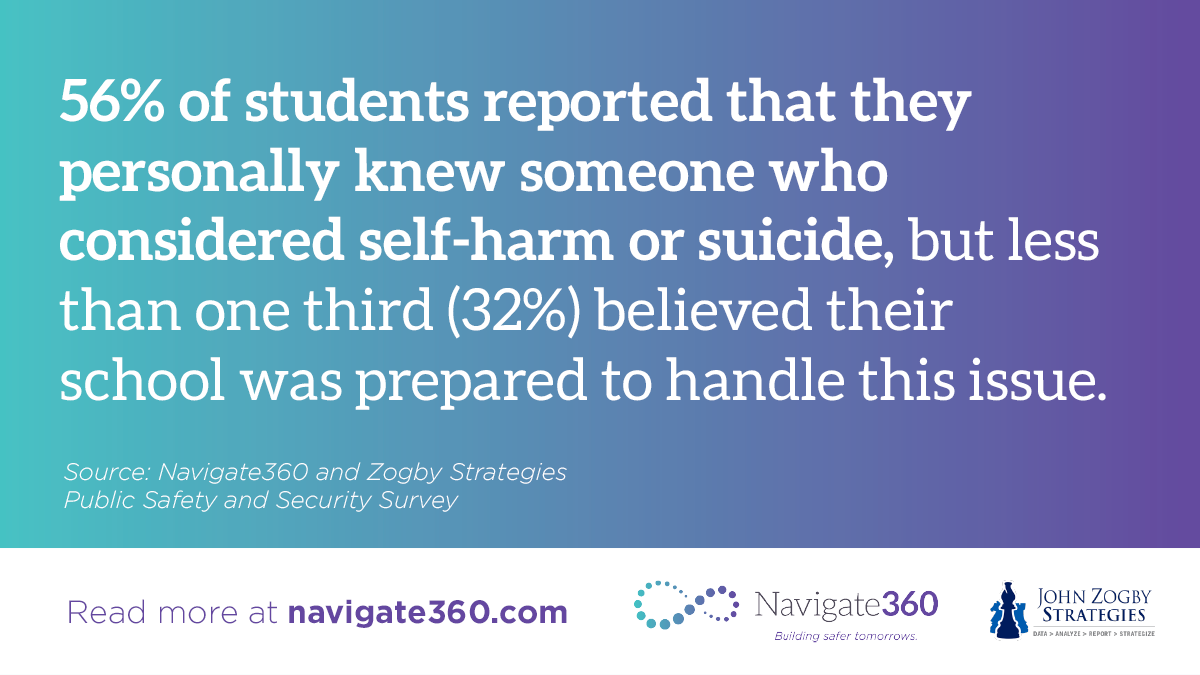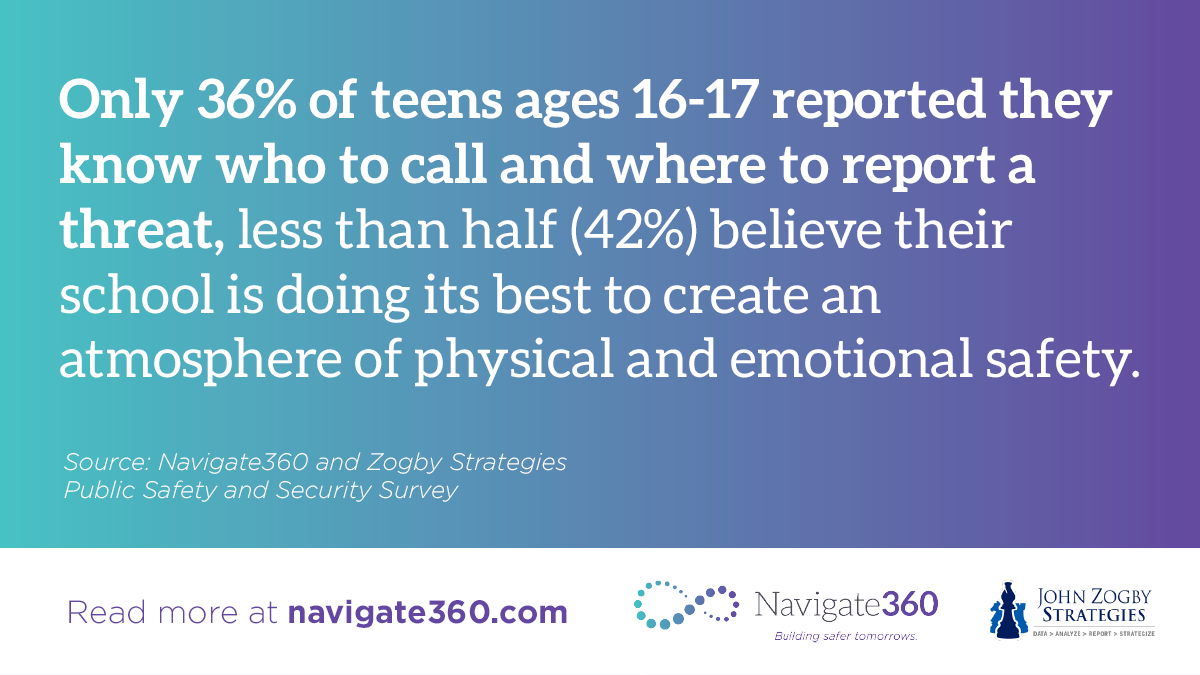 Many of this nation’s teens are experiencing overwhelming depression and anxiety in light of the ongoing pandemic and related stressors involving remote learning, increased isolation and family instability, according to a poll Navigate360 recently conducted with John Zogby Strategies.
Many of this nation’s teens are experiencing overwhelming depression and anxiety in light of the ongoing pandemic and related stressors involving remote learning, increased isolation and family instability, according to a poll Navigate360 recently conducted with John Zogby Strategies.
According to the Navigate360 / Zogby Strategies Public Safety and Security Survey, 56% of teens say they know someone who has considered self-harm or suicide, but less than one-third (32%) believe their schools are prepared to handle this issue. This data indicates that too many American teens lack confidence in schools’ ability to keep them safe when they return to the classroom – in fact, even less confidence compared to a previous survey conducted last year.
“Students are telling us they don’t feel safe in school, and we as a nation need to put in the work to reverse this trend,” said Navigate360 CEO JP Guilbault. “Through staff trainings and established processes and protocols, schools can ensure students are supported and comfortable asking for help.
“Leaders in both the public and private sectors need to come together and take action to address our nation’s school safety crisis,” added Guilbault. “Americans should have confidence that students are learning in environments that are physically, socially and emotionally safe and allow young adults to thrive so they can reach their full potential.”
What We Can Do
Despite teens’ uncertainty about schools’ ability to ensure their safety and emotional wellbeing, there are steps we can take to build their confidence and sense of security – whether they’re returning to their classrooms or continuing learning in virtual environments.
 Students can benefit from access to social-emotional learning curricula that can help them manage their emotions as they build a sense of accountability, empathy and justice for everyday life. Additionally, schools can connect troubled students to counseling and other critical mental health resources when concerning behavior is identified through comprehensive behavioral threat assessment programs. Providing ongoing support is key to making students feel that their schools are taking their physical and emotional safety seriously. This is especially crucial given the current national climate.
Students can benefit from access to social-emotional learning curricula that can help them manage their emotions as they build a sense of accountability, empathy and justice for everyday life. Additionally, schools can connect troubled students to counseling and other critical mental health resources when concerning behavior is identified through comprehensive behavioral threat assessment programs. Providing ongoing support is key to making students feel that their schools are taking their physical and emotional safety seriously. This is especially crucial given the current national climate.
“While adults are slowly becoming more confident, today’s Gen Z teens are known for not trusting familiar institutions and leaders,” said John Zogby, who conducted the poll. “The current crisis only seems to have exacerbated that rejection, especially towards school leadership and their ability to keep students safe. Unaddressed, this could have broader outcomes on Gen-Z’s future.”
About the Poll
The Navigate360 / Zogby Strategies Public Safety and Security Survey consisted of a sampling of 1,000 of this nation’s adults and was conducted online on December 14, 2020. The margin of sampling error is within +/-3.2 percentage points. The poll of 304 16- and 17-year-olds was conducted online on December 14, 2020, with parental permission. It has a sampling error of +/-5.7 percentage points.